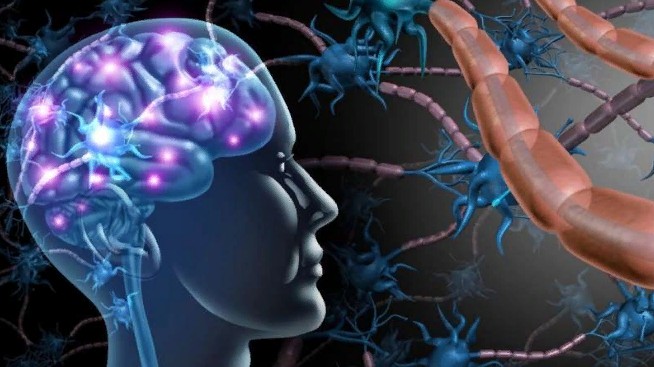A new study claims that the ketogenic diet can help persons with multiple sclerosis.
The Keto diet is a low-carb lover’s dream, but a new study reveals the popular eating plan may also help with some MS symptoms (MS).
MS is an autoimmune illness in which your body assaults the insulation that surrounds your nerves, resulting in numbness, exhaustion, bladder troubles, mood issues, and mobility issues that can make daily life difficult. MS has no known cure.
However, there may be a solution to alleviate the discomfort.
People with MS who ate a keto diet for six months experienced less fatigue and depression, as well as an enhanced overall quality of life, according to the study.
“When studied over a six-month period, our study provides evidence that medically supervised ketogenic diets are safe and tolerable, and that they provide clinical benefits to people with MS,” said study author Dr. J. Nicholas Brenton. He is the director of the University of Virginia’s Pediatric MS and Related Disorders Clinic in Charlottesville.
Keto diets limit carbohydrate intake while increasing fat and protein intake. The goal is to switch from burning blood sugar for energy to burning fat for energy (ketosis), which will result in weight loss.
The exact mechanism by which a keto diet helps MS symptoms are unknown, but researchers have their beliefs, beginning with the weight loss it causes, given the growing importance of obesity in MS.
Ketogenic diets may also assist persons with MS to reduce inflammation and rebalancing their gut microbes. According to Brenton, certain gut bacteria cause increased inflammation in the body, which has been noticed in some MS patients.
65 adults with relapsing-remitting MS, the most common form of the condition, took part in the study. It is characterized by flare-ups followed by remissions. For six months, the patients followed a strict ketogenic diet.
The ketones in their urine were measured every day to assess if they were keeping to the diet. (Ketones are created when the body burns fat for energy.) During the six-month research period, 83% of participants stuck to the regimen.
After six months, those who followed the diet had reduced body fat and experienced a 50% reduction in fatigue and unhappiness. Furthermore, their overall quality of life and mental health increased during the research.
They also did better on exams that assessed MS impairment. In a six-minute walking test, study participants walked an average of 1,631 feet at the start of the study, compared to 1,733 feet after six months on the keto diet.
According to Brenton, the levels of inflammatory markers in their blood also improved during the study period.
Should everyone with MS switch to a ketogenic diet?
Brenton responded, “Not necessarily.” There is no such thing as a “one-size-fits-all” MS diet. “What works for some people may not work for others,” he added, adding that “accumulating research suggests that nutrition therapies in MS patients have various benefits.”
“At this time, my best recommendation is to have a good, well-balanced diet and keep a healthy weight, as both of these factors are likely to help with MS.”
The findings will be presented at the American Academy of Neurology’s annual meeting in Seattle, which will take place from April 2 to 7. Medical meeting findings should be regarded as preliminary until they are published in a peer-reviewed publication.
According to Dr. Barbara Giesser, a neurologist at the Pacific Brain Health Center in Santa Monica, Calif., “this study builds on prior work in animals and smaller studies in people.”
“Ketogenic diets may help people with MS through a variety of ways, including lowering inflammation, reducing body fat, and/or creating a less inflammatory gut microbiome,” said Giesser, who was not involved in the new research.
The study had some drawbacks, including its small size and the lack of a control group for comparative purposes, according to Giesser.
Ketogenic diets, she added, aren’t without risk. “Ketogenic diets might lead to various medical issues or vitamin deficiencies,” Giesser cautioned, adding that “any dietary plan should be adopted after consulting with a physician.”
Giesser recommended that persons with MS consume a heart-healthy diet that is rich in colorful plants, lean proteins, and polyunsaturated fats like omega-3 fatty acids found in salmon and other fatty fish, and minimizes saturated fats, highly refined grains, sweets, and processed foods.





